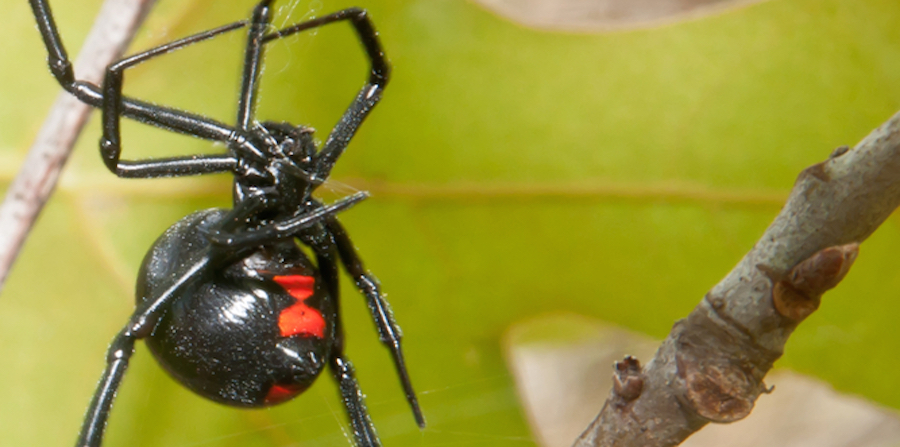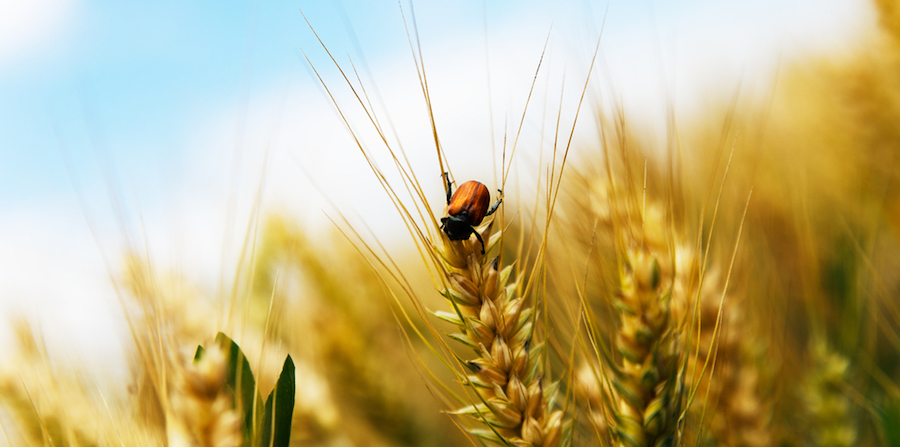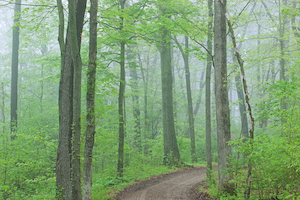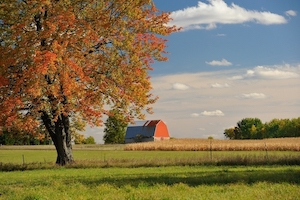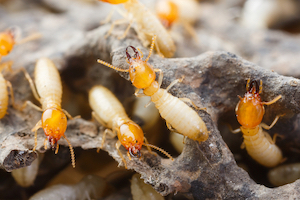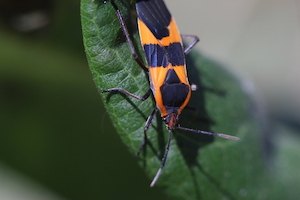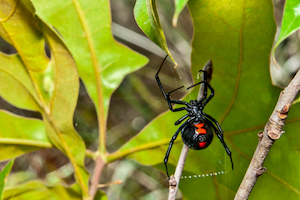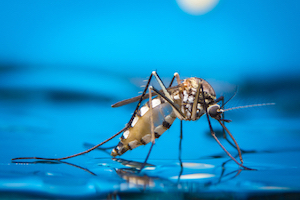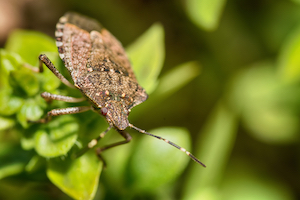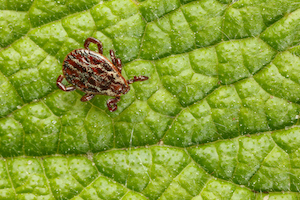Unfortunately, Michigan is home to several pests that can be quite dangerous. Some, like the black widow spider, are dangerous because of their venom. Others, like the Blacklegged tick, are dangerous because of diseases they can transmit. No matter why these pests are dangerous, however, you’ll want to keep away from them.
Ironically, the best way to keep away from dangerous pests in Michigan is to learn a thing or two about them. If you can reliably identify Michigan’s biggest baddies, you can take important steps to stay safe from them. Here’s what you should know about Michigan’s four most dangerous pests:
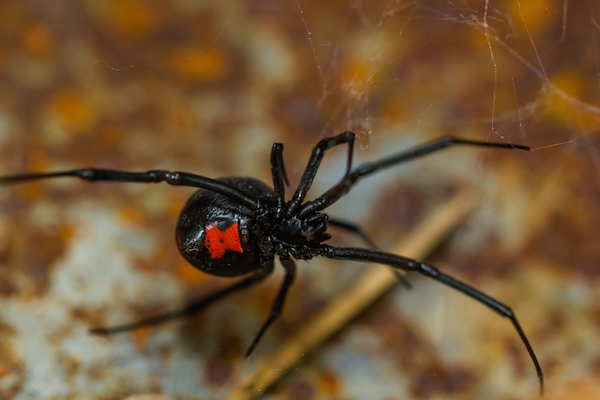
Black Widow
The Northern black widow spider’s habitat ranges throughout the eastern and central US. Michigan’s trees and prey make it the ideal environment for the poisonous spider to thrive in. Northern black widows are inch-and-a-half long, black spiders with a red “hour glass” marking on the back of their abdomens. The spider is common around Michigan’s lower peninsula, especially in the Southwest.
While it’s true that they are common in Michigan, widow bites are quite rare. Black widows are timid and only bite if their web is threatened. Widows build their webs anywhere they can catch prey. They’re most commonly found in dark, damp locations like old stumps, hollow logs, fence posts, sheds, crawlspaces, basements, and woodpiles. Symptoms of black widow bites appear after 30 to 60 minutes and include muscle spasms, chills, nausea, fever, sweating, aches and pain, and headaches. If you’re bitten by a black widow, seek medical help immediately.
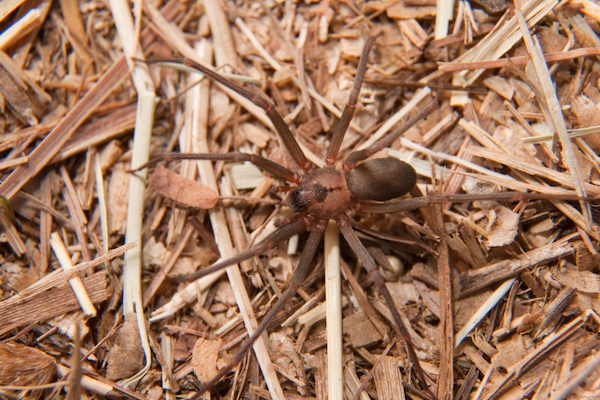
Brown Recluse Spider
The brown recluse is a poisonous spider native to the Southeast US. Experts traditionally believed that Michigan winters keep brown recluses out. However, from 2011 to 2017, six populations of brown recluse spiders have been identified in Michigan. The most recent population in Davison, Genesee County, lived in an unheated, detached garage. The fact that they lived through the winter in an unheated environment may imply that they can establish themselves in Michigan permanently.
Recluses are around 6 to 20 millimeters long and tan or dark brown. They have a dark, violin-shaped mark on their thorax, or the back upper torso. Brown recluses seek out warmth and dampness and are usually found in rotting wood or cardboard. Brown recluse bites can rarely cause potentially life-threatening necrosis, or flesh death. If you think you’ve spotted or been bitten by a brown recluse, let the experts know right away.
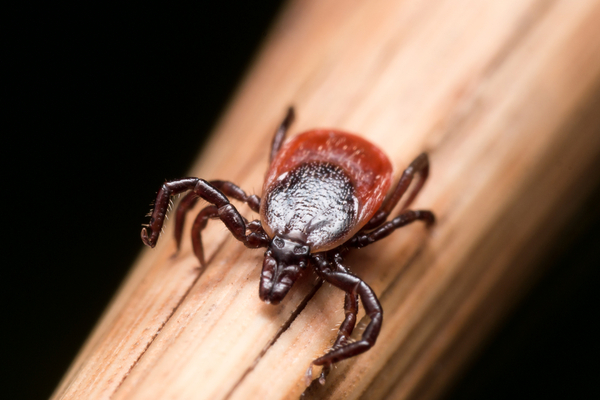
Blacklegged Tick
The Ixodes scapularis, aka the “blacklegged” or “deer” tick, is one of three hard ticks commonly found in Michigan. Blacklegged ticks are most common in Western Michigan, but you could find them in any grassy area. Blacklegged ticks are small brown ticks with distinctive black legs (hence their common name). Like all ticks, Blacklegged ticks hunt or “quest” by perching on plant life and clinging to passing prey. This tick species primarily feed on humans during summer months.
Blacklegged ticks are the primary transmitters of Lyme disease in the North-central US. Blacklegged ticks pick up the disease-causing Borrelia burgdorferi bacteria when they feed on deer. Then, when they feed on a human, they transmit the bacteria into that human’s bloodstream. Lyme disease causes fevers, headaches, fatigue, and an expanding rash called Erythema migrans. Avoid tick bites by applying repellent when walking outside and staying out of grassy areas. Remove any ticks that attach themselves to you right away.

Mosquitoes
You know what mosquitoes are. Everyone knows what mosquitoes are, especially here in Michigan. Yes, of course they’re annoying… but are they really dangerous? Unfortunately, mosquitoes are dangerous because they carry and transmit various diseases. Worldwide, mosquitoes are among the most important and deadly disease transmitters. In Michigan, some species of mosquito may spread the West Nile virus. Mosquitoes pick up the disease when they feed on birds. They spread it via blood contact when they feed on humans.
80% of people afflicted with the West Nile virus never show any symptoms. For about 19% of people, West Nile triggers fevers, headaches, vomiting, and a rash. In less than 1% of cases, West Nile also triggers encephalitis or meningitis. Both of these inflammatory disorders are very serious and could have permanent or fatal effects. The best way to avoid West Nile virus is to avoid mosquito stings. Always wear repellent when walking outside and avoid mosquito breeding environments.
Hopefully we haven’t made you afraid to live in your own state! While it’s true that we’ve got some dangerous pests up here, they’re all more afraid of you than you are of them. By learning to identify pests like these and staying out of their way, you shouldn’t have anything to worry about.
And, of course, if you do end up confronting dangerous pests in your home, you can give us a call anytime. Michigan’s big bads have nothing on us!

